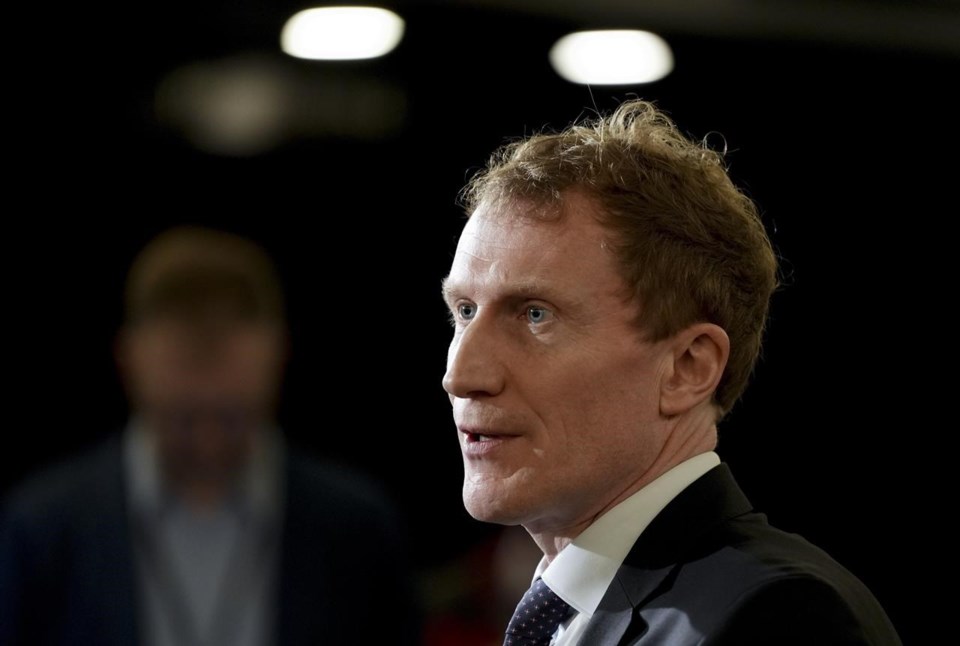HALIFAX — Universities in Atlantic Canada say Ottawa’s move to temporarily cap international admissions risks undermining the work done to make the region an attractive higher-education destination for foreign students.
“We have a real concern about the reputational harm that this decision will have on international students' perception of how welcome they are in Canada, and in our part of the country in particular,” Peter Halpin, executive director of the Association of Atlantic Universities, said in an interview Tuesday.
He said international students represent about 30 per cent of the enrolment at the 16 universities in Atlantic Canada, compared to about 20 per cent across the country.
They also play an important role in regional immigration. About 56 per cent of international students who study in the region stay in Atlantic Canada two years after graduation, Halpin said.
“Atlantic Canada has the most rapidly aging population in the country … and international students are proving to be the best source of new citizens in communities right across the region.”
Natalia Tola, deputy chairperson of the Canadian Federation of Students and a former international student from Ecuador, said Monday’s announcement from federal Immigration Minister Marc Miller came as a shock.
“It really goes beyond disappointment, it goes beyond anger,” Tola, a Halifax resident, said in an interview Tuesday.
She said students have been voicing concerns about housing, food insecurity and predatory international recruitment tactics for years, and the cap doesn’t address the root causes.
"And yet now when the situation has reached a point of crisis, the solution that we see is cutting international enrolment when these are students who bring so much to the population."
Miller announced on Monday that new visas for international students will be cut by more than one-third this year as the federal government tries to slow a rapid increase in temporary immigration, which has put pressure on Canada's housing system.
The minister said the two-year cap will give federal and provincial governments time to address some bad actors that have taken advantage of the student visa system. The number of new visas handed out this year will be capped at 364,000, down from the nearly 560,000 issued last year.
Université de Moncton president and vice-chancellor Denis Prud'homme told reporters Tuesday he’s worried about the long-term impact of the cap on francophone student recruitment and immigration. He said it’s possible that tuition may have to be raised if the cap results in losses to the school. The school currently has 1,932 international students among its total enrolment of 5,205.
“Every year there is an increase in expenses, so we will need to either increase the ... student body, or increase tuition, or hope the government will increase the grant,” Prud'homme said.
Halpin said these are the kinds of decisions schools will have to make to remain financially viable.
“As long as provincial government operating grants remain stagnant, it's incumbent upon the universities in terms of their own future financial sustainability,” he said.
International students pay considerably higher tuition fees than Canadian students, and the gap between the two groups has widened in recent years.
For the 2022-23 academic year, Statistics Canada reported that international undergraduate students paid an average of $36,123. That's 429 per cent more than tuition fees for domestic students.
In January 2023, Cape Breton University announced it would be limiting enrolment to a popular business program following concerns that the school is not equipped to handle the recent influx of international students amid a housing shortage in Sydney, N.S.
Last month, the school announced a new code of conduct for international recruiters aimed at protecting prospective students from misleading claims about the school and off-campus life following criticism from students who have claimed that recruiters contracted by the university have been dishonest about the state of affordable rental housing and the availability of part-time work in the region.
As of last fall, 6,940 out of the roughly 8,500 students at Cape Breton University are from outside Canada.
This report by The Canadian Press was first published Jan. 23, 2024.
Lyndsay Armstrong, The Canadian Press



